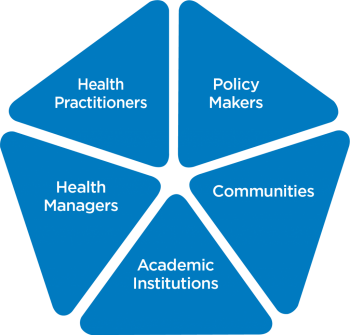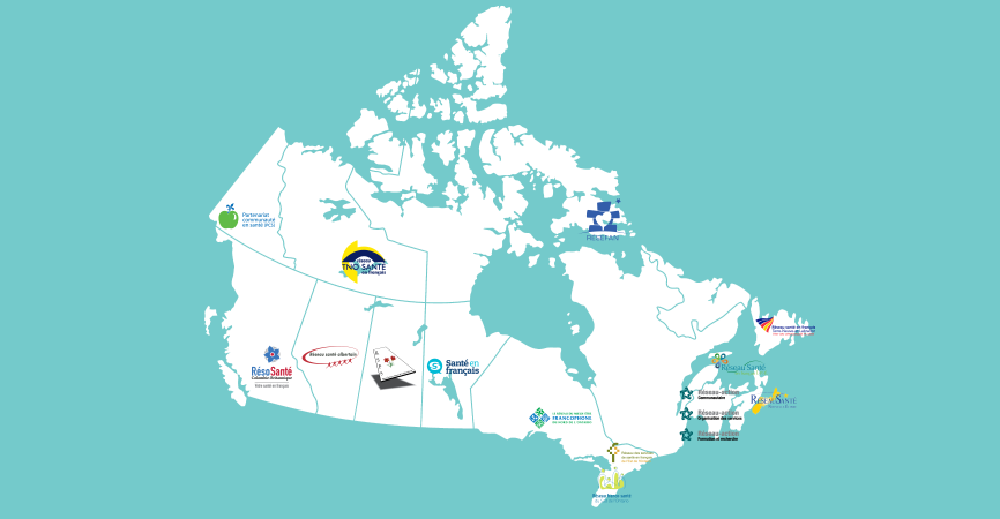
Active across Canada through the country’s 16 French-language health networks, the Société Santé en français (SSF) is a non-profit organization that collaborates with 12 provincial and territorial health systems to improve access to health services in French.
More than a million Canadians speak French as their first official language but live in minority communities, that is, in a province or territory where the language spoken is English. Access to quality health services in French is a serious challenge for these people.
 When language barriers exist, the impact on health services is significant:
When language barriers exist, the impact on health services is significant:
-
The quality of services is affected, which may have an impact on diagnoses, limit communication between the professional and the patient, reduce self-management of his or her health, and reduce the individual’s contribution to his or her own treatment.
-
Safety risks increase, for example, as a result of extending the length of hospital stays, increasing the number of tests and examinations to compensate for communication, reducing patients’ ability to follow medical or medication-related instructions or hindering informed consent.
Through well-established collaboration with Canada’s French-language health networks, the SSF has implemented the “Towards Unity for Health” model, which is designed to engage five types of partners that are essential to the transformation of health systems: political decision-makers, managers of health institutions, health professionals, academic institutions, and the communities.
The SSF and networks are working to provide:
-
French-language health services and programs that are accessible, adapted and actively offered in Canada.
-
Motivated, equipped and valued human resources that provide health services in French.
-
Health institutions, programs, and policies that demonstrate the ability to provide quality and safe health services in French in accordance with language accessibility standards.
-
The systematic capture of the language variable in the provinces and territories in order to provide evidence to promote informed planning and decision-making.
-
The tools needed by minority Francophone and Acadian communities to be engaged and equipped to act for their health and well-being in French.

Source: Société Santé en français
To do so, the SSF receives support from the Canadian government through Health Canada, the Public Health Agency of Canada, and Immigration, Refugees and Citizenship Canada.
